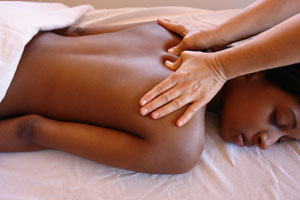
What do alternative treatments have in common?
Some treatments, like Chinese acupuncture, herbs, massage, or Ayurvedic medicine from India, have roots in ancient cultures. Others are more recent. While the treatments themselves vary, they share some common themes:
- Holistic philosophy. Holistic (from the Greek word holos) means to join body, mind, spirit, and emotion. In the fourth century B.C., the Greek doctor Hippocrates, the "father of medicine", wrote of healing the whole patient rather than just treating a disease. This ancient belief is the basis of many alternative treatments used today.
- Preventive medicine. Many alternative treatments are meant to nourish the body as well as treat symptoms. Disease is believed to be caused by being out of balance. The goal of treatment is to help the body find its balance again, which helps prevent disease instead of just treating symptoms.
- Aiding self-healing. Many alternative therapies are based on a belief that, with support, the body can heal itself.
- Energy body. Nearly every ancient culture believed we have both a physical and an energy body. A balance of energy is key to good health. An imbalance of energy or a blockage is believed to cause disease.
